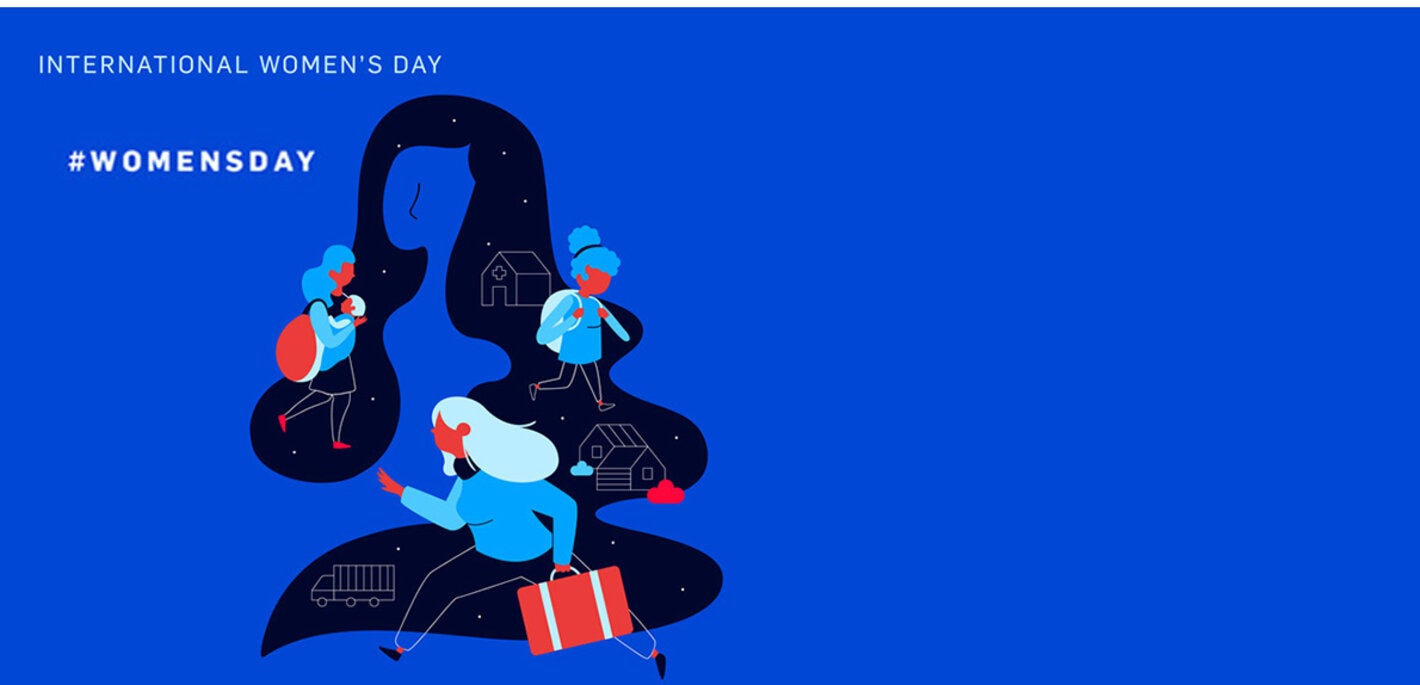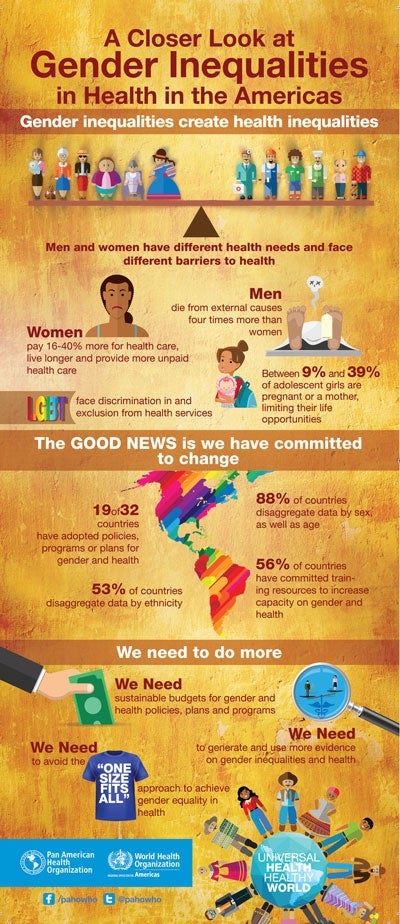
Health is a key component of sustainable development; likewise, achieving many Sustainable Development Goals will impact the health of the world's population. Therefore, aligned with this global agenda and other ongoing commitments, PAHO joins this year's commemoration of International Women's Day by drawing attention to the urgent need to achieve gender equality and women's empowerment for health so everyone can be guaranteed the opportunity for health throughout the life course.
Ban Ki-Moon, the Secretary-General of the United Nations, has stated that "the 2030 Agenda for Sustainable Development is firmly rooted in gender equality." As such, the UN will be reflecting on how to accelerate and leverage the effective implementation of this 2030 Agenda, and its 17 Sustainable Development Goals (SDGs), for the empowerment of girls and women.
 The SDGs include specific goals on gender equality, women's and girls' empowerment, and reducing inequality. However, achieving SDG 3 to "ensure healthy lives and promote well-being for all at all ages," will also require action on gender inequalities and inequities to ensure that women's and girls' health needs are equally met. This health goal also includes precise targets to achieve women's comprehensive health within a framework of universal health. Amongst these, the agenda commits to universal access to sexual and reproductive health care services. This is especially important for the Americas, as there is still a gap between supply and demand for contraception, although we have witnessed coverage of family planning programs grow over the last years.
The SDGs include specific goals on gender equality, women's and girls' empowerment, and reducing inequality. However, achieving SDG 3 to "ensure healthy lives and promote well-being for all at all ages," will also require action on gender inequalities and inequities to ensure that women's and girls' health needs are equally met. This health goal also includes precise targets to achieve women's comprehensive health within a framework of universal health. Amongst these, the agenda commits to universal access to sexual and reproductive health care services. This is especially important for the Americas, as there is still a gap between supply and demand for contraception, although we have witnessed coverage of family planning programs grow over the last years.
Of course, women also need access to health services to meet the full range of their health needs. The 2030 Agenda commits countries to universal health coverage, including ensuring that people do not face financial hardship when they get sick, something of special importance to women who are overrepresented amongst those living in poverty and who currently pay more out of pocket for their health care. At the same time, it will be crucial for health to be part of the bigger picture of all the SDGs and to promote SDG 5, "achieve gender equality and empower all women and girls."
I am proud that PAHO has had a Policy on Gender Equality in Health for the last decade, but at the same time I recognize the complexity of continuing to tackle gender inequalities in health. We know that the everyday realities of women are not all the same and that many women face multiple challenges to achieving health and wellbeing. In particular, women living in poverty or facing an extra burden of discrimination related to their ethnicity or race grapple with a series of obstacles to access health. We need to respond to these different needs and avoid "one size fits all" approaches to gender equality in health.
Countries of the Americas have recognized the need to meet the SDG targets in order to ensure gender equality in health. We know that significant challenges still exist: the progress on gender and health equality between and within countries and in different areas of health is still uneven; funding for gender equality in health continues to be unstable; and the sufficient use of disaggregated data for decision making and for the formulation of effective policies and programs - as well as the monitoring of gender inequalities in health — is sorely lacking. We need sustainable budgets and more evidence to make sure policies work and real change is being made.
We are dedicated to achieving this change. Countries of the region have recently reaffirmed their commitment to gender equality in health and have approved new lines of action, tailored to the SDGs and other international mandates for the continued implementation of PAHO's Gender Equality Policy, and calling for the highest level of institutional commitment and accountability to address these challenges and to reduce gender-based health inequities.
In observation of International Women's Day 2016, PAHO calls for consolidated actions, renewed efforts and new partnerships to leave no woman or girl behind in our collective pursuit of universal health. We will walk hand-in-hand with health and other sectors and our many partners and advocates to guarantee the right to health for all the women and girls that make up half of our world.



